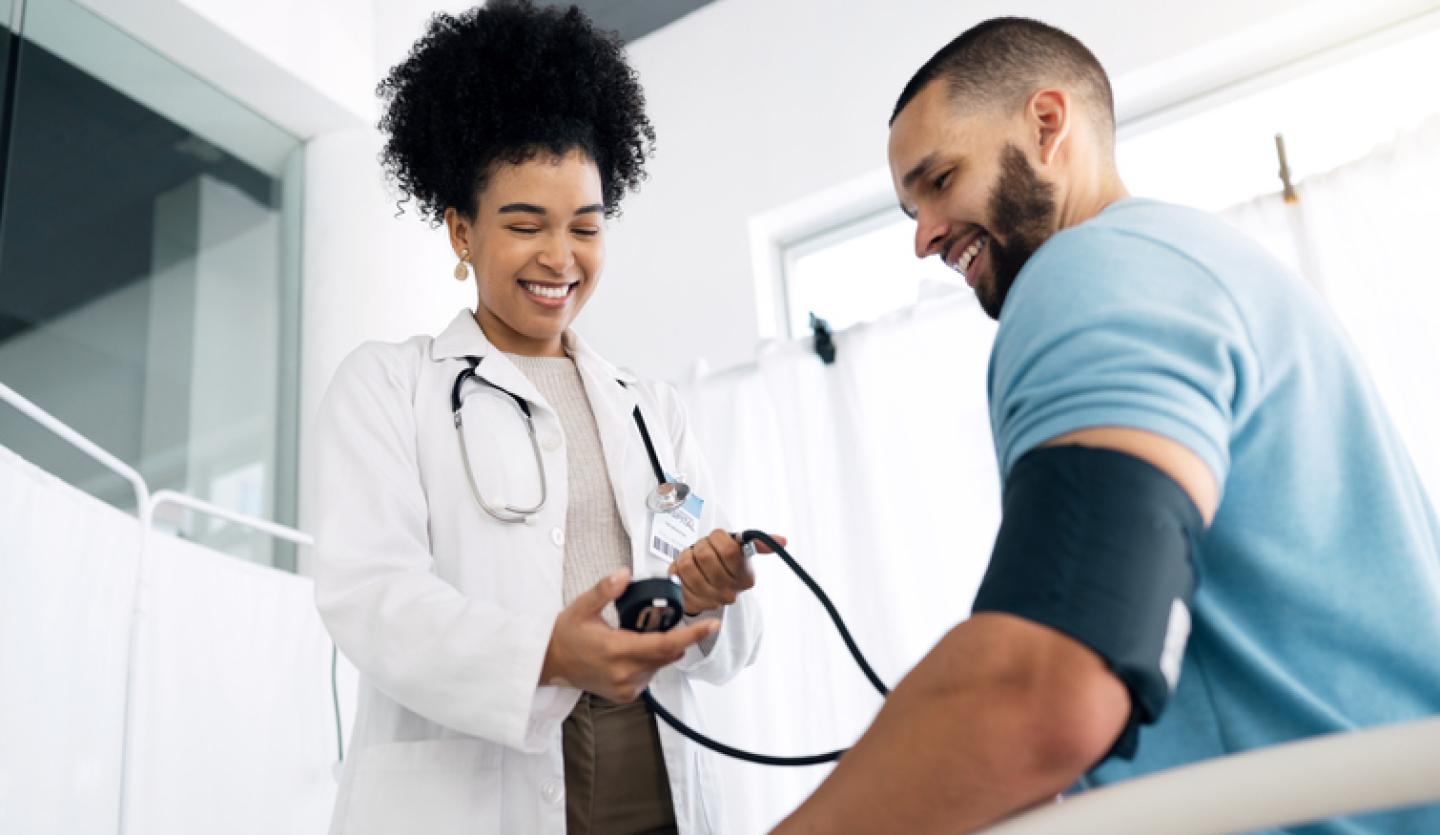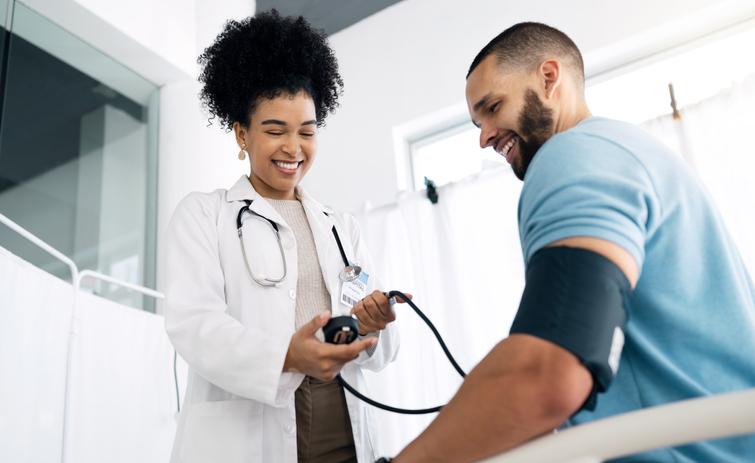“High blood pressure is called a silent killer because adults often do not know they have it before serious, sometimes fatal, health complications like heart disease and stroke occur,” said Mark Guelzow, MD, Catholic Health Primary Care Physician.
Dr. Guelzow noted it is important to make annual exams a regular part of your health care routine. “Your primary care physician monitors your blood pressure, evaluates your risk factors and helps you make lifestyle changes. If you have high blood pressure, your doctor will explore the best treatment options for you,” he said.
What is blood pressure?
Blood pressure is the measured force of blood flowing through the body's vessels. This happens due to the heart pumping or contracting in response to electrical signals. Without this pressure, our body would be unable to deliver oxygen from our lungs to our vital organs. This force is expressed in two numbers:
- Systolic pressure—the top number
- Diastolic pressure—the bottom number
The American Heart Association estimates that nearly half of all American adults suffer from high blood pressure.
What is considered high blood pressure?
The American Heart Association recognizes five blood pressure ranges.
- Normal. A blood pressure reading of less than 120/80 mm Hg is considered within the normal range.
- Elevated. Blood pressure reading consistently ranging from 120-129 systolic and less than 80 mm Hg diastolic.
- Hypertension Stage 1. Blood pressure reading consistently ranging from 130-139 systolic or 80-89 mm Hg diastolic.
- Hypertension Stage 2. Blood pressure reading consistently ranging at 140/90 mm Hg or higher.
- Hypertensive crisis. Blood pressure reading suddenly exceeds 180/120 mm. Requires medical attention.
What happens if I have increased blood pressure?
Increased blood pressure over a long time is referred to as hypertension or high blood pressure.
This causes several problems.
- Increases the force necessary for the heart to pump blood over time and stresses the heart muscle. The heart compensates by enlarging and eventually failing to pump effectively.
- Overloading vital organs (such as the kidneys) with excessive force and pressure leads to eventual damage.
- Excessive pressure damages the lining of blood vessels, leading to narrowing and blockage, which is called atherosclerosis. This is often a problem in coronary artery disease and peripheral vascular disease.
- Damaged arteries may leak or balloon outwards, resulting in aneurysms and ruptures. In the abdomen, this can lead to an internal hemorrhage. In the brain, this can lead to a stroke.
How can I maintain healthy blood pressure?
“The most important way to prevent the development of high blood pressure is by leading a healthy lifestyle,” said Dr. Guelzow.
Tips to reduce your risk of developing high blood pressure include:
- Not smoking
- Maintaining a healthy weight
- Getting enough sleep
- Limiting alcohol intake
- Eating a diet low in sodium and saturated fats
- Exercising regularly
- Managing stress
“Increased blood pressure is one of the body’s natural responses to perceived threats,” said Dr. Guelzow. “This stress-response system functions as a survival mechanism in the short term, but it can negatively impact your health in the long term.”
What are other risk factors for high blood pressure?
- Family history. A genetic history of high blood pressure or other cardiac conditions.
- Age. The risk for high blood pressure increases as you age.
- Gender. Men under the age of 64 are more likely to develop high blood pressure. Women aged 65 and older are more likely to develop high blood pressure.
- Race. Black people are more likely to develop blood pressure, including earlier in life. Black women are nearly 60% more likely to have high blood pressure than white women.
How Heart-Healthy Are Your Habits?
How do I know if I have high blood pressure?
High blood pressure often has no apparent symptoms. Some may experience symptoms such as:
- Fast, racing heartbeat
- Headache
- Dizziness
- Nosebleed
- Shortness of breath
- Nausea
- Anxiety
- Chest pain (call 9-1-1 immediately if you have chest pain)
Call your primary care physician if you are concerned about your health, and keep up with routine blood pressure screenings.
Explore Catholic Health cardiology services.







